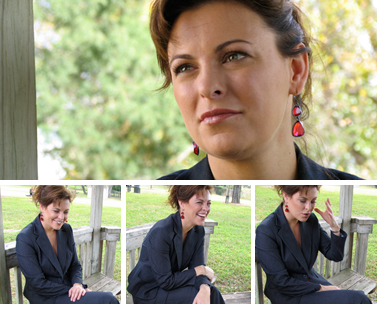Back at USF, former Miss America advocates diabetes education
Miss America 1999 Nicole Johnson, who was diagnosed with Type 1 diabetes while a USF student, has joined the USF diabetes team.
When Nicole Johnson first heard she had diabetes, she was a USF student. Alone and scared, she reacted to the news with a gesture of defiance: downing an entire 2-liter bottle of sugary Coke herself.
Now Johnson is back at USF. But she’s not the frightened student she once was. Johnson became Miss America in 1999, and she has transformed herself into one of the nation’s best-known advocates for diabetes education.
During her year as Miss America, Johnson criss-crossed the United States, preaching the importance of diabetes awareness. She showed off her insulin pump to kids who’d never seen one before. She helped convince thousands of people to get tested for diabetes.
Most of all, Johnson proved that having diabetes doesn’t have to close the door on your dreams.
After her term as Miss America, Johnson was offered a TV news job in a major market. But she turned it down, because she had already found her calling. Instead, Johnson has continued to speak out on behalf of people with diabetes. Now 35, she hosts a weekly TV show, dLifeTV, on CNBC, and operates her own Nicole Johnson Foundation to improve diabetes education. She serves on health advisory boards, consults for diabetes companies, and has written four books.
Nicole brings that same passion to helping USF expand its diabetes education programs and research capabilities.
[audio:http://health.usf.edu/nocms/publicaffairs/now/mp3/nicole_Johnson_on_diabetes01.mp3]“I’m so thrilled to be part of the USF diabetes team now,” Johnson said. “I was diagnosed with Type 1 diabetes while I was a student here at USF, so it’s just a really special full-circle type of moment for me.”
Because Johnson knows firsthand just how hard it is to be diagnosed with diabetes, she is acutely concerned with counseling and education available for people with diabetes. Health providers need to help people with diabetes understand how to manage diabetes in their daily lives, with plans adjusted for their special needs.
“Diabetes education all over this country is lacking a very specific thing, and that’s reality,” Johnson said. “We have to meet patients and families where they are, in their lifestyle, and tailor diabetes management to how they live.”
That education needs to include the patient’s family, as well as the patient, she said. Often the entire family needs to adjust their meals. And family members need to recognize the signs of a bad diabetes reaction or other medical problem.
Johnson also is pushing for more psychological counseling for people with diabetes and more discussion of the emotional impact of the disease.
“It’s incredibly overwhelming,” she said. “All of a sudden, in one second – ‘you have diabetes’ – your entire world changes. It flips, from how you exercise to how you function in your daily life, to what you eat, what your family eats, what you feed your children.”
Doctors, health educators and patients don’t talk enough about the emotional impact of diabetes, she said. But a disease that governs the choices you make every day inevitably affects your well-being.
The constant attention to diet can affect a patient’s body image. The label “diabetic” can make a patient feel damaged or broken. The constant testing can make patients anxious or parents unable to sleep, afraid they might miss their child’s health crisis.
[audio:http://health.usf.edu/nocms/publicaffairs/now/mp3/nicole_Johnson_on_diabetes02.mp3]“When you’re looking at the meters and the monitors and looking at what the number of your blood sugar is, you’re often making a judgment of your self-worth,” Johnson said. “Or parents make a judgment of ‘how good a parent am I,’ based on that number. The psychosocial and emotional impact is tremendous. And it never stops.”
As a diabetes patient, Johnson also is excited about the possibilities that USF’s research could create for fighting the disease. She first became a participant in a clinical research trial three years ago, when she was pregnant with her daughter, Ava Grace.
During that trial, Johnson was fascinated to learn that her blood sugar control actually improved while she was pregnant. Such changes make her realize the potential for helping diabetes patients through research.
Johnson and her daughter also participated in two trials overseen by Jeffrey Krischer, PhD, the USF professor of pediatrics coordinating international studies on ways to prevent diabetes. So far, Ava Grace hasn’t shown any signs of the disease.
“We are doing everything we can to be part of the solution to diabetes,” Johnson said. “And that’s a message we want to take to other families all around this area.”
[flv]http://www.health.usf.edu/nocms/publicaffairs/now/FLV/nicole_Johnson_on_diabetes.flv[/flv]
– Story by Lisa Greene, USF Health Communications
– Photos by Klaus Herdocia, USF Health Communications




